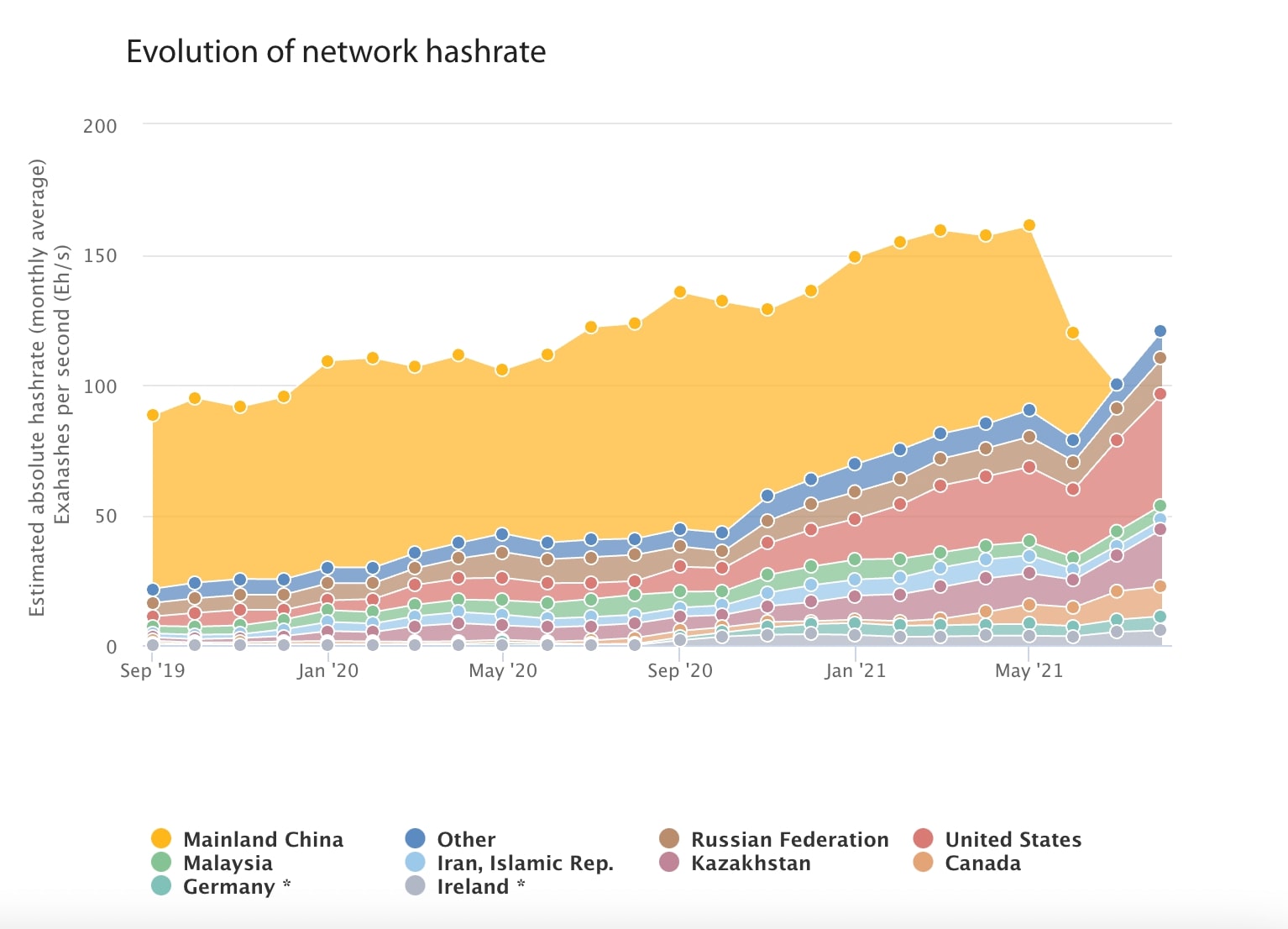Bitcoin (BTC) hashrate has come to a halt following a strong start to the year. Kazakhstan, the world’s second-largest Bitcoin mining country, has experienced an unprecedented internet outage, freezing the entire mining industry for several hours.
Kazakhstan miners face widespread internet outage
The information was reported by internet service provider NetBlocks. Kazakhstan is currently facing “a nationwide internet outage after a day of mobile network disruptions”. According to their report, the strength of internet connectivity in the Central Asian country fell to 2% on Wednesday.
⚠️ Confirmed: Kazakhstan is now in the midst of a nation-scale internet blackout after a day of mobile internet disruptions and partial restrictions.
The incident is likely to severely limit coverage of escalating anti-government protests.
Report: https://t.co/Op5GwzXKbh pic.twitter.com/pdHJkJFe7v
– NetBlocks (@netblocks) January 5, 2022
A comparison of the hashrates of the major mining pools indicates that the impact of the Internet outage in the country resulted in a 12% drop in the Bitcoin hashrate. The most affected are 1THash (-82%), OKExPool (-46.3%) and KuCoinPool (-22.7%). Indeed, Kazakhstan is the second most powerful country in terms of Bitcoin (BTC) mining and captures over 18% of the total hashrate alone.
Internet has been down in Kazahstan for a few hours where roughly 18% if Bitcoin’s hashrate is.
Looks like the impact on the hashrate is so far 12% drop just in the last few hours since internet went down. pic.twitter.com/FcTDsJ6R77
– Larry Cermak (@lawmaster) January 5, 2022
The internet outage in Kazakhstan comes as the country faces a complicated economic and social crisis. Following violent protests against the sharp rise in fuel prices, the previous Kazakh government was dissolved on Wednesday.
According to some specialists, Kazakhtelecom, the largest telecommunications company in Kazakhstan, voluntarily cut the Internet throughout the country to “severely limit media coverage of the intensifying anti-government protests”. The move was not enough to contain the protests, which resumed today.
Kazakhstan benefits from Chinese miners’ flight
That said, this recent hashrate drop is nothing like the one that hit Bitcoin in May, following China’s intensified crackdown on cryptocurrencies. The business administration department of the People’s Bank of China (PBoC) had closed down several companies accused of facilitating cryptocurrency transactions.
Moreover, exchange platforms such as Huobi and Okex were the first to sniff out the scam, suspending almost all of their services for users resident in China. Of course, minors were not spared. On the contrary, they were asked to cease their activities, while the Bitcoin mining industry was often considered too dependent on the Middle Kingdom country.

Bitcoin hashrate evolution by country (Source: Cambridge Centre for Alternative Finance)
In spite of itself, Kazakhstan had found itself host to this exodus of miners from the neighbouring country. While the Bitcoin hashrate from China completely died out in June 2021, the hashrate from miners in Kazakhstan increased almost twofold, from 10.6 Eh/s to 21.9 Eh/s in two months.
There are several reasons for this trend. Obviously, the proximity of the two countries, but also the Kazakh government’s very welcoming policy towards this new industry, which is now recognised by legislation. Moreover, in September 2020, a 700 million dollar investment plan was launched by Kazakhstan to boost the sector. Finally, and most importantly, the country’s electricity prices are the lowest in the world, at $0.036 per kWh.
Too much development for the country
Since the beginning of the year, Kazakhstan has registered 146 companies involved in cryptocurrency mining. The new registry includes 53 companies currently mining, 82 considering mining and 11 other infrastructure providers. These providers are mostly data centres like Enegix, one of the largest such centres in the world.
Now the second largest source of bitcoin hashrate in the world – after the US and ahead of Russia – Kazakhstan has seen a surge in cryptocurrency mining during 2021. That said, as soon as miners moved in, the country saw its resources and facilities put under strain.
Indeed, faced with too much demand, and in order not to handicap the rest of the country, the government had to take strict measures. Since the beginning of the year, miners have been subject to an additional tax of 1 tenge per kilowatt-hour of electricity, or 0.002 euros at the time of writing.
In the midst of these problems, some miners have already chosen to leave Kazakhstan. BitFuFu, one of the largest, has stated that it is abandoning its machines in the country and moving to the United States due to inconsistent rules and power cuts. Still, we’ll have to keep an eye on the situation, and the impact it will have on Bitcoin’s mining business.
